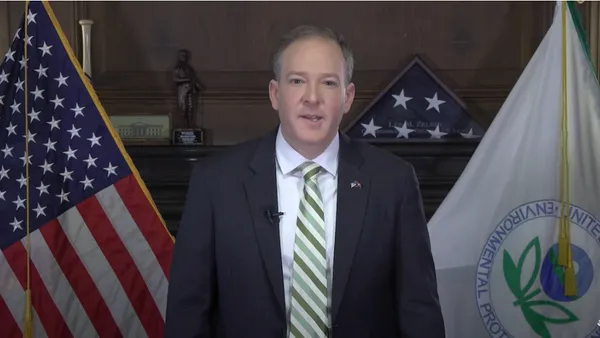Dive Brief:
- Nearly 90% of city finance officers reported feeling better able to meet their financial needs in fiscal year 2022 than in fiscal year 2021, according to an annual National League of Cities report released Wednesday. Last year, only 65% of finance officers reported feeling the same in comparison to fiscal year 2020.
- In total, 395 financial officers from cities with populations over 100,000 responded to the survey. They largely cited the value of their city’s tax base, federal aid, and the health of the local economy as the biggest reasons they were able to balance their FY22 budgets. Rising costs and inflation, as well as employee wages and salaries, were cited as the biggest hindrances to doing so, the report stated.
- Conversely, just 69% of finance officers reported feeling optimistic about meeting the financial needs of their cities in FY23 due to a fear of a looming economic slowdown, the report stated.
Dive Insight:
City budgets are faring better since the start of the COVID-19 pandemic than they were in the years following the 2008 economic recession. A strong housing market and an influx of federal relief through legislation such as the American Rescue Plan Act allowed cities to balance their budgets and address community needs.
For cities, federal assistance has been “critical to their survival,” and officials continue to advocate for more, said Clarence Anthony, NLC’s CEO and executive director, during an event around the report’s release Wednesday.
Cities are proceeding with “cautious optimism,” added Farhad Omeyr, program director of research and data at NLC, during the event.
Following the challenging economic environment in 2020 and 2021, municipal governments “are much more optimistic about their ability to balance their budget going forward,” said Omeyr.
At 89%, FY22 marked the largest share of financial officers who reportedly felt able to meet their city’s financial needs any year since at least 1990. In FY20, at the start of the pandemic, just 22% felt able to meet their financial needs, and in FY21, 65% felt able.
However, city leaders are reportedly concerned about increased costs from inflation and another economic downturn.
Federal Reserve policies that have tempered inflation rates have been helpful, the NLC report stated, and federal interventions “remain critical to our cities’ fiscal health and prosperity.”
But cities have budgeted “drastic declines” in revenue and expenditures in fiscal years 2022 and 2023 because they are “being super cautious and fiscally conservative” due to inflation, Omeyr said.
Both income and sales tax revenue surged in FY21 over the previous year due to businesses reopening following pandemic restrictions and as unemployment rates steadily declined. On the other hand, property tax revenue has decreased since 2019, the report stated.
However, property tax revenue follows the cycle of the economy by two or three years, said Omeyr. “Whatever happened in 2020, property taxes are showing their decline now,” he said.
Property tax receipts are expected to decline by more than 4% year over year in FY2022, as the Federal Reserve increases interest rates, leading to a housing market slowdown, the report stated. Meanwhile, sales tax receipts are expected to drop 2.5% year over year and income tax revenue is not expected to grow in fiscal 2022 over 2021.
While the “unusually high inflation” is putting pressure on city’s budgets and could impact economic health, Anthony said, “municipal governments are figuring out how to weather the storm.”











